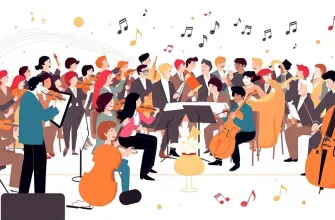Soviet cinema has a rich history of intertwining music with storytelling, particularly in the realm of classical music. These films not only showcase the beauty and complexity of classical compositions but also delve into the lives of composers, musicians, and the cultural significance of music in Soviet society. This curated selection offers a unique glimpse into the world of classical music through the lens of Soviet filmmakers, providing both entertainment and education for enthusiasts and newcomers alike.

Beethoven - Days in a Life (1976)
Description: This film portrays the last days of Ludwig van Beethoven, capturing his genius, his deafness, and his struggle with his own mortality. It's a poignant look at the man behind the music, highlighting his humanity and his art.
Fact: The film was shot in Vienna, where Beethoven spent much of his life. It includes performances of Beethoven's music by renowned orchestras.
 30 Days Free
30 Days Free 
Tchaikovsky (1969)
Description: This biographical film explores the life of the legendary Russian composer Pyotr Ilyich Tchaikovsky, focusing on his struggles, his music, and his relationships. It's a deep dive into the emotional and creative world of one of Russia's most celebrated composers.
Fact: The film was nominated for an Academy Award for Best Foreign Language Film. It features music from Tchaikovsky's most famous works, including "Swan Lake" and "The Nutcracker."
 30 Days Free
30 Days Free 
The Violin Player (1974)
Description: This film tells the story of a young violinist's journey to become a virtuoso, set against the backdrop of Soviet life. It's a tale of passion, dedication, and the pursuit of musical excellence.
Fact: The lead actor, Vladimir Krainev, was himself a renowned pianist, adding authenticity to the film's portrayal of musical life.
 30 Days Free
30 Days Free 
Mozart and Salieri (1962)
Description: Based on Pushkin's play, this film explores the legendary rivalry between Mozart and Salieri, offering a dramatic interpretation of their relationship and the music that defined their era.
Fact: The film was directed by Vladimir Gorikker, who was known for his work on historical dramas. It features music from both composers.
 30 Days Free
30 Days Free 
The Musicians (1967)
Description: A light-hearted comedy about a group of musicians in a small Soviet town, this film captures the everyday life and the joy of music-making, showcasing the universal language of music.
Fact: The film was one of the first Soviet comedies to focus on musicians, offering a humorous take on the life of an orchestra.
 30 Days Free
30 Days Free 
The Concert (1974)
Description: This film follows a conductor who, after being banned from conducting, gets a chance to perform again. It's a story of redemption, the power of music, and the resilience of the human spirit.
Fact: The film was shot in Moscow and features real musicians from the Bolshoi Theatre.
 30 Days Free
30 Days Free 
The Star of Captivating Happiness (1975)
Description: While not exclusively about classical music, this epic historical drama includes significant musical elements, portraying the lives of the Decembrists and their wives, with music playing a central role in their lives.
Fact: The film was one of the most expensive Soviet productions of its time, featuring a large cast and elaborate sets.
 30 Days Free
30 Days Free 
The Violinist (1987)
Description: A story of a young violinist's journey to find his place in the world of music, this film explores themes of identity, passion, and the sacrifices required for artistic expression.
Fact: The film was shot in Leningrad, now St. Petersburg, and includes scenes filmed in the Mariinsky Theatre.
 30 Days Free
30 Days Free 
The Return of the Violin (1972)
Description: This film follows the story of a violin that has been passed down through generations, symbolizing the continuity of music and culture in Soviet society.
Fact: The violin featured in the film is an actual historical instrument, adding authenticity to the narrative.
 30 Days Free
30 Days Free 
The Musician (1988)
Description: A poignant drama about a musician's struggle with his own talent and the pressures of the Soviet music scene, this film captures the essence of artistic integrity and personal conflict.
Fact: The film was one of the last Soviet films to be made before the dissolution of the USSR, reflecting the changing times in its narrative.
 30 Days Free
30 Days Free 








